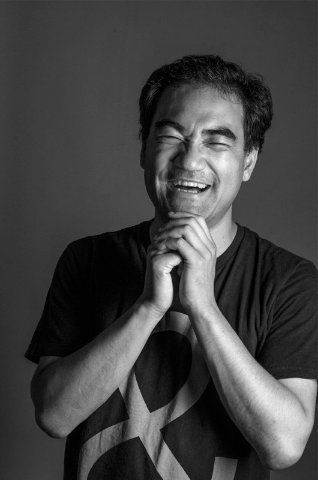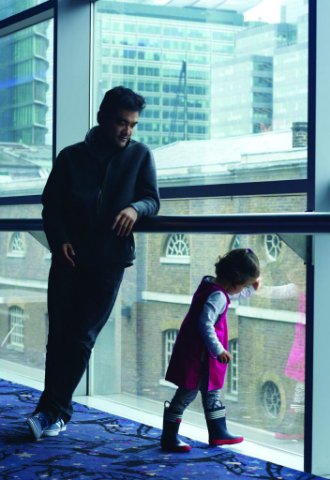Dai Fujikura Featured at Miller Theatre
International Contemporary Ensemble Delves into Fujikura's Music
By: Susan Hall - Mar 06, 2020
Miller Theatre
Composer Portraits
Dai Fujikura
With International Contemporary Ensemble
Daniel Lippel, guitar
Daniela Candillari, conductor
March 5, 2020
Dai Fujikura lives in the quotidian and draws from it for the music he creates. We hear a portrait of his daughter in the first month of her life, a secret forest where all the sounds are beautiful, and memories of high school friends who were all wannabe guitarists.
Richard Strauss created the Symphonia Domestica, a day in the life of the Strauss family when Franz was a baby. In Strauss, focus was more on the passionate one-ups-man ship of the parents. Pauline Strauss may have been a bitch, but her insistence that Richard go upstairs and compose has given us incomparable music. Fujikura reports that his wife insisted that he not compose for a month before his child was born, and for the first month of her life. What a treasure emerged from this denial.
Parents are absent in Minina. We imagine ourselves inside the baby's head and heart. The composer wonders: how can the little girl possibly dream when she knows nothing of the world outside the womb? Dream she does, as International Contemporary Ensemble presents her to us. Claire Chase is a magician on the flute. Listening to her, we come to see the world of her playing embedded in the moments she breathes and clucks before approaching the embouchure hole and actually blowing into it. And after a note, or a series of notes, are released, she dips and stretches into her next note, a marvel of human/flute interaction.
Joshua Rubin, on clarinet, reminds us throughout the evening that this is the instrument that gets to impersonate more birds and animals than any other. He plays the child's innocent entrance into the world with such pure tones. Nicholas Masterson on oboe, Rebekah Heller on bassoon and Nathan Davis on dulcimer all add texture and meaning to the picture.
Alice Teyssler joined instrumentalists to sing silence seeking solace. Fujikura makes interesting use of the poet Harry Ross's repeated words, like "of the thing" thirteen times in a row, to bring the desired calm which is realized at the end of the piece.
Daniela Candillari conducted to bring forth that wonderful combination of depth and lightness that we associate with the Japanese. Listening to Fujikura talk, you got a sense of his humor, particularly about himself. When ICE took their first trip to Japan, we wanted above all for them to be coming to play his music. Not any old Japanese composer's.
Often his works concern the relationship between the soloist and the ensemble. While he is composing Fujikura negotiates this, constantly asking instrumentalists how he can make them feel comfortable and look good. He always has pulse. He departs from the regular to 5 against 7 part rhythms, but always returns to a steady start beat.
The Miller Composer Portrait series adds immeasurably to the pleasure we take in contemporary music.



